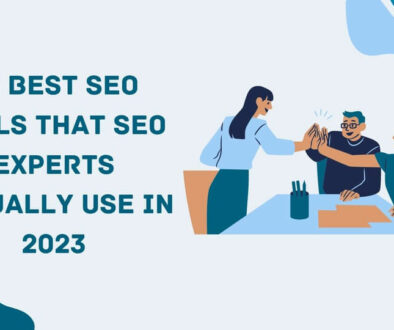6 Important SEO Factors for Website Ranking
A search engine would be the first place where you would go to find a product, service, or simply an answer to a question that you are curious about.
The search engine can provide quick answers, detailed research articles, and even infographics to guide you as much as possible.
But information is available in bulk, bringing websites to the ranking’s competition. So how can you secure a better spot in search engines?
That is where search engine optimization comes into work. SEO is essential for any website to rank well or even index the search engine results pages.
On the brighter side, search engines like Google update their algorithms and guidelines for the convenience of SEO experts to optimize their platforms accordingly.
In this article, we will discuss the 6 most important SEO factors for website ranking.
6 Most Important Ranking Factors in SEO
Below we have mentioned various factors that will state the ranking of your website under both on-page and some aspects related to off-page SEO.
1. High-Quality Content
The first and far most important factor in on-page SEO is the quality of content. Search engines like Google have clearly defined plagiarism-free content as a ranking factor. But maintaining uniqueness is not all. It would be best if you also focused on the following elements.
• Posting poor-quality content can increase your site’s spam score, ultimately affecting its ranking in SERPs. You can evaluate your site with a Spam Score Checker to maintain ranking among the top shelves. A low spam score benefits your site, so aim for the smaller digits.
• The readability of your content is also a significant factor that can be maintained by understanding the persona of the targeted audience. Repetition of content can make it spammy or plagiarized.
• The content is fresh with updated information and can maintain relevancy with the trending. Writing new content is not enough, as you must keep updating the old content.
• It carries the intent of the primary keyword that matches the user’s online queries. An example can be taken from the featured snippet answers on the first page of Google search results.
2. Keyword Adjustment
Keywords are essential in webpage content as they help connect the audience with your webpage. They are further categorized into longtail and shorttail keywords, which are classified based on the number of words in the content.
Once you have found the right keywords to feature in your content, the next step is to adjust them in the right places. Ensure you include the keywords in the following places on your webpage.
• Meta Title
• Meta Description
• H1 Title
• H2 Headings
• URL/link of the webpage
• In the first 100 words
• The naturally or less promotional way in the body of the title
3. Backlinking
A backlink denotes a page from another website that comes to your platform. A webpage with links leading back to it imposes an impression to search engines that your platform is providing high-quality content.
However, before backlinking with any website, pass it through a DA PA checker to learn about its credibility.
Multiple links from a high-authority website can get you more accreditation than gathering links from multiple low-authority websites.
The following link-building strategies can be profitable for you in this case.
• High-quality content with unique material provides credible information to the audience. It will help to generate backlinks on its own.
• You can go for data-driven content or thought leadership material that leads to lucrative theoretical information.
4. Image Optimization
Image optimization is important as Google is not only focused on written content, but it also presents graphical content under its Images tab. Moreover, the visual search result is getting more common since Google introduced search with an image option in its interface.
Therefore, make sure the following elements are ensured in your image.
• The text alternative of the image featured on your webpage should be elaborated in the form of text. The term is also known as alt text, which briefly describes the image, including the relevant keyword.
• Compress or resize the image to a point where it can quickly load on the site. The standard size should be between 70-100KB in the PNG format. In addition to that, the image should not be wider than 1000px.
• Use stock images and graphics instead of screenshots and charts in your blog posts. Make sure the images are not protected under copyright. Otherwise, your platform may have to face permanent penalization.
5. Website Structure
The website’s structure carries great importance as it relates to the navigation of your user and the way they interact with your website. You don’t have to bulk everything on a single page of your sight.
Make sure to partition information into various categories so the user can easily access it.
Therefore, focus on the internal linking structure of your website for better navigation. Search engines work by crawling various sections of your website and indexing multiple pieces of a site, including the featured snippet answers.
6. Mobile Friendliness
Google has emphasized using the mobile-first index on all the newly updated websites. It means that Google is also carrying out a ranking assessment on the basis of mobile versions rather than desktop.
Now the most famous search engine has made this a rule for all websites.
Simply put, optimizing your website for desktop and mobile versions is vital for securing a better spot-on ranking. To ensure the system’s optimization, you can also opt for Google’s Mobile-Friendly Test.
Conclusion
Search engine optimization is not merely dependable on a single factor but follows a collection of strategies that can be applied to a webpage.
Collecting these strategies result in better rankings in the search engine page results. Now the algorithms emphasize optimizing content for search engines and mobile phones, tablets and other handheld devices which can be operated portably.
This article featured 6 significant factors that can help secure better rankings in search engine result pages. These factors apply to any niche or website, including marketing platforms and blog posts.
I hope this article provided you with credible information on securing better search engine rankings.
Jorg Moritz is a contributor content writer.


